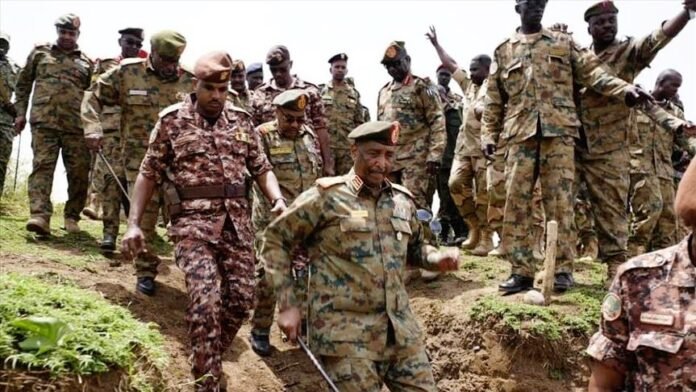Johannesburg, South Africa — Sudan’s fragile transition teeters as armed factions reject the proposed Hope Government in Port Sudan.
Since the Sudanese army appointed Kamil Idris Tayeb as Prime Minister of the de facto government in Port Sudan—following the military coup that ousted the civilian administration in late 2021—tensions between the armed movements and the Sudanese Armed Forces have intensified.
These rifts burst into public view when Prime Minister Idris convened a meeting with leaders of various armed factions to present his vision for the so-called “Hope Government.” However, prominent leaders, including Minni Arko Minnawi of the Sudan Liberation Movement and Gibril Ibrahim of the Justice and Equality Movement, rejected Idris’s proposal. Others argued that clinging to outdated power-sharing formulas contradicts the essence of political change.
According to Sudanese media, the meeting included 21 political and military organizations. Friction began the moment Minnawi entered the room accompanied by his aide, Nour Al-Da’im, without greeting the attendees. Sources indicate that Minnawi’s dismissive attitude stemmed from prior knowledge that Idris intended to appoint Abu Aqla Kikel—commander of the Sudan Shield Forces militia—and Hamid Sayed Ahmed Sar Al-Khatim (also known as Al-Jakoumi), head of the Northern Track, to senior positions in the new government.
Minnawi exited the meeting before its conclusion, leaving his aide to voice protest on his behalf. The session ultimately collapsed without producing any tangible outcomes.
Escalation
In the aftermath, sources in Port Sudan reported that army chief Abdel Fattah al-Burhan responded swiftly upon learning what had transpired. He dispatched two top intelligence officials—Hassan Al-Ballab and Mohamed Abbas Al-Labib—to confront the armed movement leaders, questioning the military and financial support they had received throughout the conflict without delivering any significant territorial gains.
According to these sources, al-Burhan’s envoys adopted a notably sterner tone in their meeting with Minnawi. Expressing the army chief’s frustration with what he viewed as political blackmail, they cited concrete figures: 1,800 combat vehicles and $420 million in support since the war began. “What have you achieved since the war broke out? Have you liberated a single area?” the envoys reportedly asked.
Reacting to the developments, Minnawi posted a strongly worded statement on the platform X on June 22, 2025:
“These days, the leaking of meetings and the deployment of vile tongues and pens to forge records and distort their content has intensified in an attempt to assassinate certain individuals. Such cowardice must never become the behavior of rulers. Those who burn bridges thinking they have crossed deceive themselves and mislead the people. This approach will force us to reveal, in the media, what should not be spoken.”
Background
The internal crisis has deepened amid devastating battlefield losses for the Sudanese army and its allied forces in the Kordofan region, where they suffered setbacks against the Rapid Support Forces (RSF). This was followed by a military withdrawal—without a fight—from the strategic border triangle between Egypt, Sudan, and Libya.
Reports suggest that the retreat came after backchannel communications between RSF leaders and commanders of the armed movements, initiated by Gibril Ibrahim, who aimed to pressure the army into reconsidering its sidelining of his faction from power.
Minnawi’s recent actions are also seen as a protest against what he perceives as systemic marginalization of his ethnic group, the Zaghawa, by the military. He has repeatedly accused the army of treating Zaghawa members as second-class citizens, both as fighters and civilians. He previously revealed that the military imposes discriminatory restrictions on Zaghawa, Masalit, and Fur personnel, preventing them from ascending to senior ranks and labeling them with the code “MFZ” within military intelligence.
Following the army’s losses in Kordofan, Zaghawa leader Abdullah Janna was detained over alleged involvement in the killing of Major General Ihab Youssef Tayeb, the commander of army operations in the region. The move came amid allegations that he had been betrayed by the Zaghawa leadership.
ALSO READ: South African Government’s Dismal Sudan Evacuation Slammed
For more insight and deep analysis from across the continent, visit the NOWinSA Africa News Hub.

